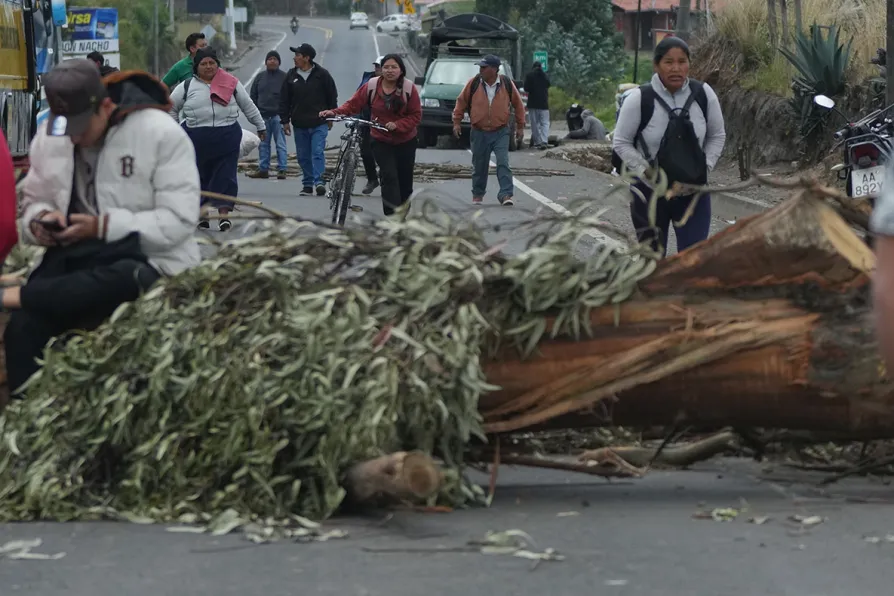
 People traverse roadblocks placed by demonstrators protesting the elimination of the diesel subsidy by President Daniel Noboa's, government in Cayambe, Ecuador, October 5, 2025
People traverse roadblocks placed by demonstrators protesting the elimination of the diesel subsidy by President Daniel Noboa's, government in Cayambe, Ecuador, October 5, 2025
PROTESTERS both for and against Ecuador's President Daniel Noboa rallied in the capital Quito on Sunday after a state of emergency took effect in 10 provinces.
Anti-government demonstrations began two weeks ago, organised by the country’s largest indigenous group, in response to the removal of a fuel subsidy that raised diesel prices from $1.80 to $2.80 per gallon (£1.34 to £2.34).
“Diesel goes up, everything goes up,” and “Out with Noboa” were among the slogans shouted by dozens of protesters at a popular park in the capital, where pro-government supporters also gathered in higher numbers.
Police dispersed protesters using tear gas after some of them tried to break through the security cordon protecting the park.
Late on Saturday, the government declared a state of emergency starting Sunday at midnight in 10 provinces, citing “serious internal unrest.”
The provinces are areas with large indigenous populations where protests have been concentrated. The order restricts freedom of assembly.
The Confederation of Indigenous Nationalities of Ecuador said President Noboa’s emergency decree “deepens his war policy” against the population’s legitimate demands.
President Noboa has said he will not reverse the fuel subsidy cut.
“Those who choose violence will face the law. Those who act like criminals will be treated as criminals,” the president said on Sunday on X.

Noboa’s second term looks set to deepen his neoliberal policies: reduced public investment, privatization, cuts to social programmes, and militarisation, says PILAR TROYA FERNANDEZ

Ecuador’s election wasn’t free — and its people will pay the price under President Noboa











